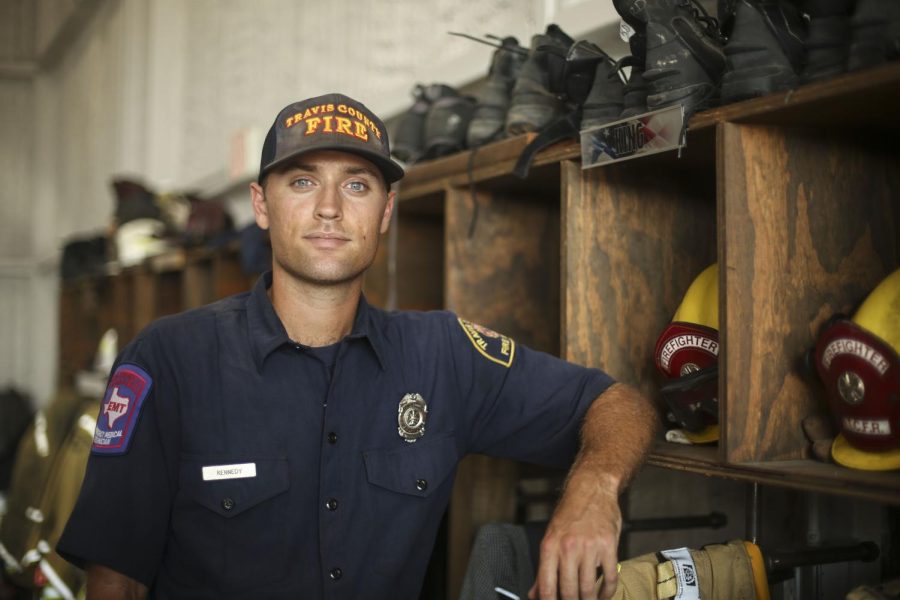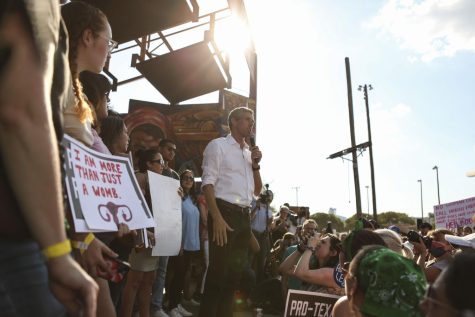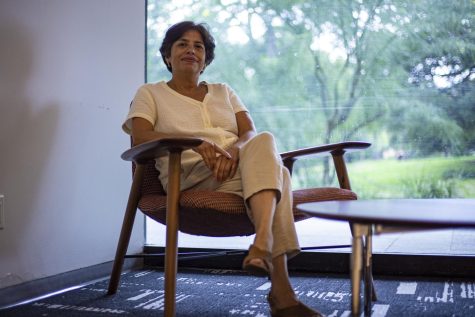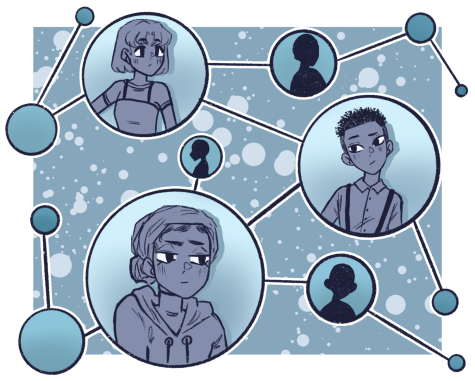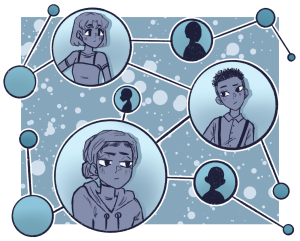UT psychology lab helps improve morale in Travis County Fire Department
September 9, 2022
Austin firefighters bonded after a February analysis by UT’s Applied Psychology Research Lab, which sought to improve workplace conditions and retention rates of Travis County’s Fire and Rescue Department.
Alissa Mrazek, the lead researcher for the lab, said based on data collected through small focus groups, she and her team determined the department could improve in trust and camaraderie.
“They work 24 hours straight together,” said Mrazek, research assistant professor of psychology. “You’re really spending a lot of time with one another, and just enjoying each other’s company is hugely important.”
Researchers designed focus groups to separate crew members from their lieutenants, Mrazek said, contributing to the lab’s goal to have crew members share their honest experiences. Newer crew members were also encouraged to speak first to prevent groupthink from overriding conversations.
Hunter Kennedy, a firefighter with Travis County for over two and a half years, said the study created a closed setting that made it easier for him and others to unravel friction points that were impacting productivity.
“When it comes to lack of trust, it has to do with not knowing the other person’s abilities and then with being in a high stress environment, and not knowing whether you can count on someone to do a certain task or not go off and injure themselves or someone else,” Kennedy said. “You have to really dig deep … so you can trust them to go out and do those things.”
Brad Ruoff, who was brought on to the team as director of training, said he joined the department after the study with the goal of valuing and nurturing the character of crew members, and his previous experience in training operations has shown that poor community culture will consistently trump strategy in a workplace environment.
“It’s a grind. It’s hard, hard work every day. I think some of the fun was missing,” Ruoff said. “(The chief) wanted me to focus on helping these guys have a good time … and just finding ways to pour fuel on that culture fire and make it brighter.”
Numerous events were introduced to further assist in developing culture, said Dustin McCormack, a Travis County firefighter of four years. Skill competitions, events outside of work and family-oriented gatherings have all aided in improving department relationships.
“The more people that get involved, the more we realize how good it is both for crew integrity and department bonding, but also for the community,” McCormack said. “Because if we’re all good buddies, it’s gonna be better for the people we’re helping because then there’s no on-scene tension between professionals.”
Since February, Ruoff said recent internal surveys have shown a positive change in many of the areas outlined by UT researchers, and he hopes to continue working with them to track growth.
McCormack said he believes retention has improved due to the established bonds throughout the department — leaving crew members with a sense of responsibility to one another.
“I still feel like there’s a lot of work that we can do moving forward to better develop our culture,” McCormack said. “We’ve been having discussions about what that looks like and how we can achieve it, and I’m excited for that.”

